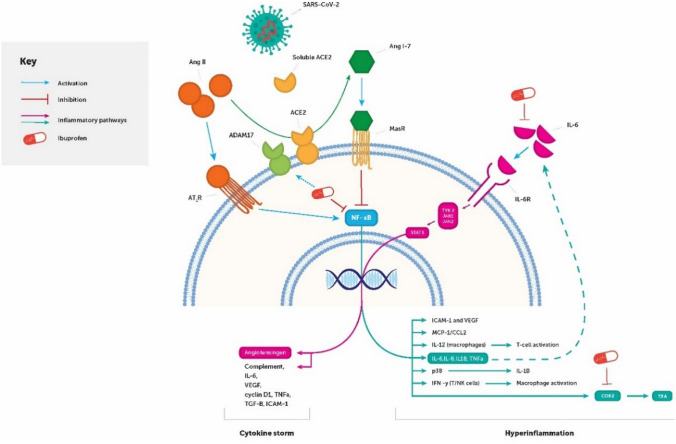Fig. 4.
Interaction of severe acute respiratory coronavirus 2 (SARS-CoV-2) with the inflammatory system via downregulation of ACE2 and potential therapeutic effects of ibuprofen in reducing inflammation. In the presence of the virus, ACE2 is downregulated, thus preventing enzymatic hydrolysis of AngII into Ang(1–7). The resulting effect is there is increased production of the transcription factor NF-kB, which activates production of further inflammatory mediators. Ibuprofen has demonstrated ability to inhibit NF-kB, as well as other downstream inflammatory mediators such as interleukin-6, that seem to be upregulated upon viral infection. Furthermore, ibuprofen is hypothesised to activate ADAM-17 cleavage of ACE2 from the cell membrane, preventing viral entry into the cell. ACE = angiotensin-converting enzyme. Ang angiotensin, ATR1 type 1 angiotensin II receptor, AT2R type 2 angiotensin II receptor, COX2 cyclooxygenase 2, ICAM intercellular adhesion molecule, IL interleukin, IFN interferon, JAK Janus kinase, MasR Mas receptor, NF-kB nuclear factor kappa-light-chain-enhancer of activated B cells, SARS-CoV-2 severe acute respiratory syndrome coronavirus 2, STAT3 signal transducer and activator of transcription 3, TGF transforming growth factor, TLR toll-like receptor, TNF tumour necrosis factor, TXA thromboxane, TYK tyrosine kinase, VEGF vascular endothelial growth factor

